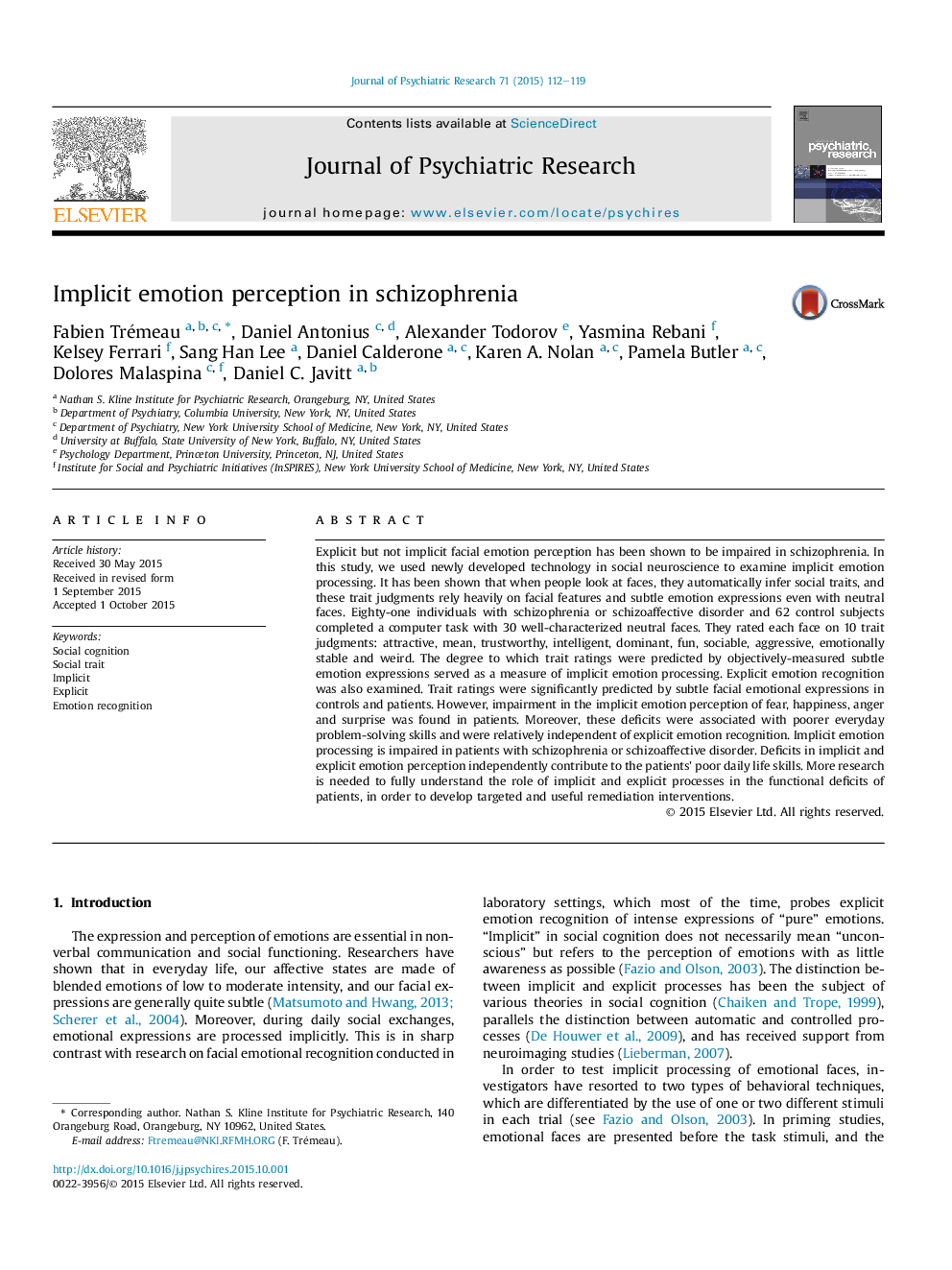| Article ID | Journal | Published Year | Pages | File Type |
|---|---|---|---|---|
| 327274 | Journal of Psychiatric Research | 2015 | 8 Pages |
Explicit but not implicit facial emotion perception has been shown to be impaired in schizophrenia. In this study, we used newly developed technology in social neuroscience to examine implicit emotion processing. It has been shown that when people look at faces, they automatically infer social traits, and these trait judgments rely heavily on facial features and subtle emotion expressions even with neutral faces. Eighty-one individuals with schizophrenia or schizoaffective disorder and 62 control subjects completed a computer task with 30 well-characterized neutral faces. They rated each face on 10 trait judgments: attractive, mean, trustworthy, intelligent, dominant, fun, sociable, aggressive, emotionally stable and weird. The degree to which trait ratings were predicted by objectively-measured subtle emotion expressions served as a measure of implicit emotion processing. Explicit emotion recognition was also examined. Trait ratings were significantly predicted by subtle facial emotional expressions in controls and patients. However, impairment in the implicit emotion perception of fear, happiness, anger and surprise was found in patients. Moreover, these deficits were associated with poorer everyday problem-solving skills and were relatively independent of explicit emotion recognition. Implicit emotion processing is impaired in patients with schizophrenia or schizoaffective disorder. Deficits in implicit and explicit emotion perception independently contribute to the patients' poor daily life skills. More research is needed to fully understand the role of implicit and explicit processes in the functional deficits of patients, in order to develop targeted and useful remediation interventions.
